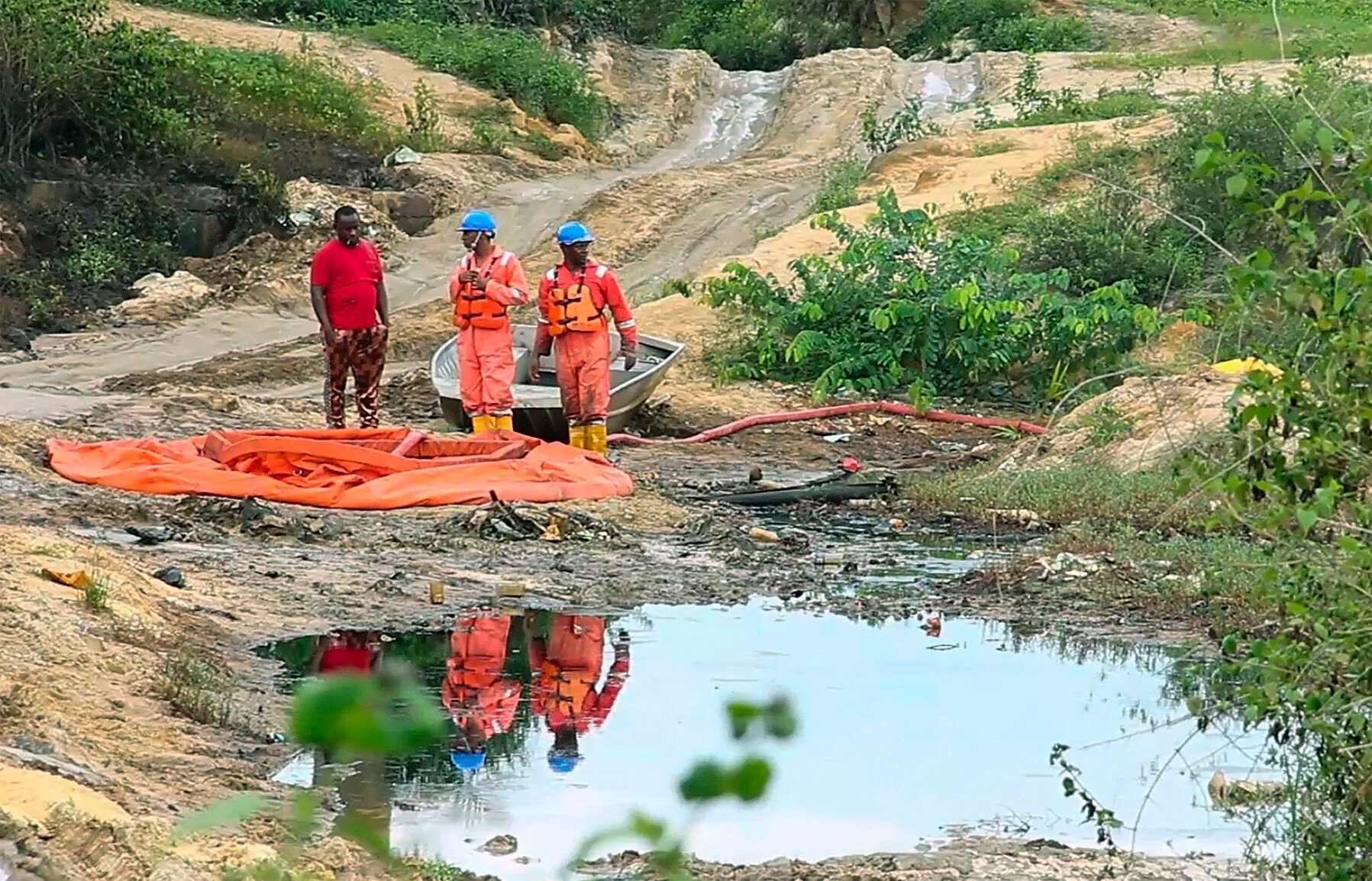Oil spill from Shell pipeline fouls farms and a river in a long-polluted part of Nigeria
ABUJA, Nigeria — A new oil spill at a Shell facility in Nigeria has contaminated farmland and a river, upending livelihoods in the fishing and farming communities in part of the Niger Delta, which has long endured environmental pollution caused by the oil industry.
The National Oil Spill Detection and Response Agency, or NOSDRA, said that the spill came from the Trans-Niger Pipeline operated by Shell that crosses through communities in the Eleme area of Ogoniland, a region where the London-based energy giant has faced decadeslong local pushback to its oil exploration.
The volume of oil spilled has not been determined, but activists have published images of polluted farmland, water surfaces blighted by oil sheens and dead fish mired in sticky crude.
While spills are frequent in the region due to vandalism from oil thieves and a lack of maintenance to pipelines, according to the U.N. Environmental Program, activists call this a “major one.”
It is “one of the worst in the last 16 years in Ogoniland,” said Fyneface Dumnamene, an environmental activist whose nonproft monitors spills in the Delta region. It began June 11.
“It lasted for over a week, bursts into Okulu River — which adjoins other rivers and ultimately empties into the Atlantic Ocean — and affects several communities and displaces more than 300 fishers,” said Dumnamene of the Youths and Environmental Advocacy Centre.
He said tides have sent oil sheens about 6 miles further to creeks near the nation’s oil business capital, Port Harcourt.

ASSOCIATED PRESS
In this photo taken from video, workers stand by a container to collect oil spill waste June 16 in Ogoniland, Nigeria. An oil spill at a Shell facility in Nigeria has contaminated farmland and a river.
Shell stopped production in Ogoniland more than 20 years ago amid deadly unrest from residents protesting environmental damage, but the Trans-Niger Pipeline still sends crude from oil fields in other areas through the region’s communities to export terminals.
The leak has been contained, but treating the fallout from the spill at farms and the Okulu River, which runs through communities, has stalled, NOSDRA Director General Idris Musa said.
London-based Shell said it is working with a joint investigatory team, consisting of regulators, Ogoniland residents and local authorities, to identify the cause and impact of the spill.
Shell’s response team “has been activated, subject to safety requirements, to mobilize to the site to take actions that may be necessary for the safety of environment, people and equipment,” a company statement said.
NOSDRA confirmed the joint investigation, but a cause of the spill — whether sabotage or equipment failure — has not yet been revealed.
Hundreds of farmers and fishermen who have been cut off from their livelihoods would insist on restoration of the environment and then compensation, Dumnamene said.
